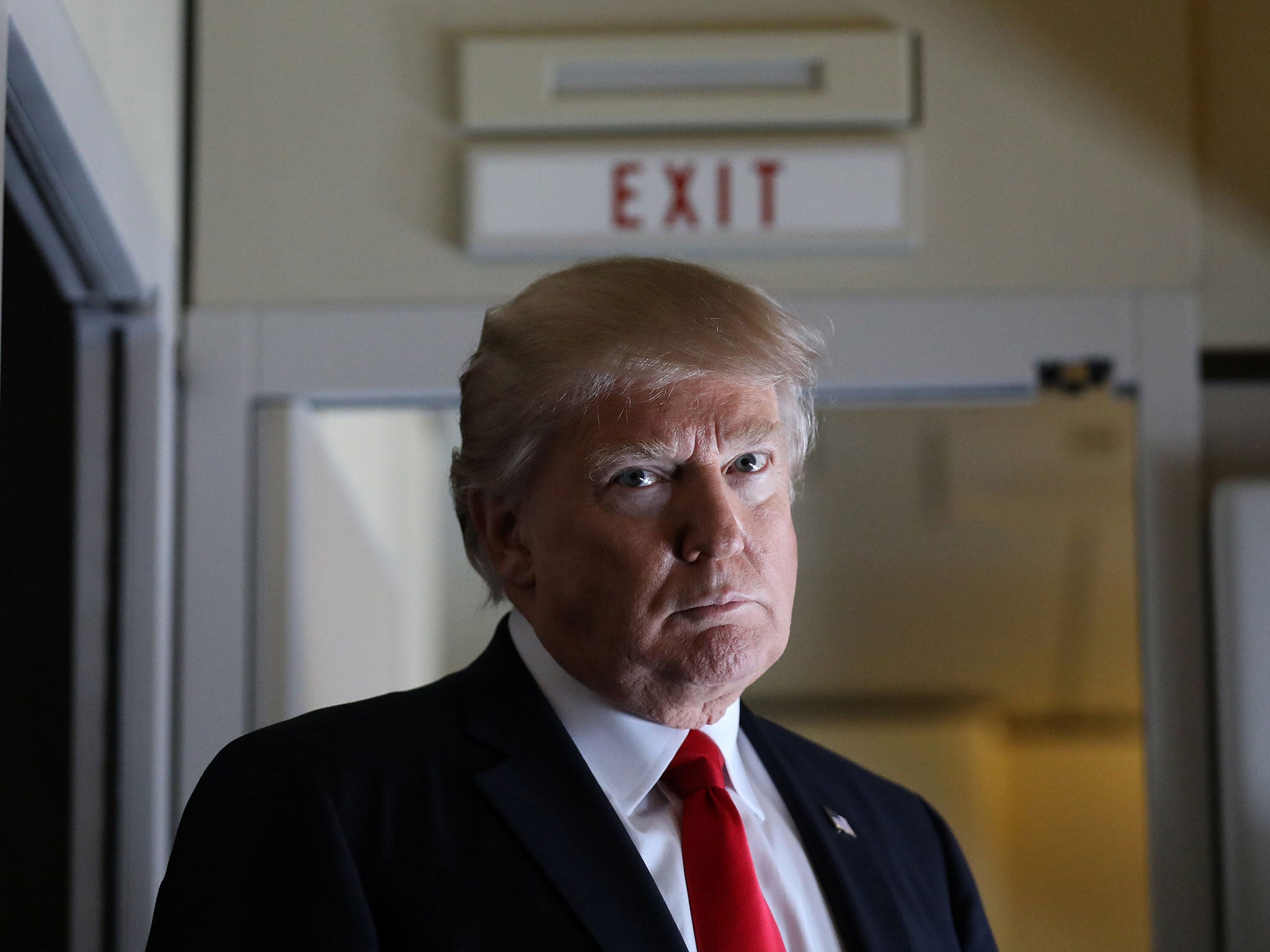Goldman Sachs downgrade their Trump excitement after chaotic first two weeks
Repeal of Obamacare, rising partisanship in the Senate and promises on trade and immigration could all hurt the US economy, analysts say

Your support helps us to tell the story
From reproductive rights to climate change to Big Tech, The Independent is on the ground when the story is developing. Whether it's investigating the financials of Elon Musk's pro-Trump PAC or producing our latest documentary, 'The A Word', which shines a light on the American women fighting for reproductive rights, we know how important it is to parse out the facts from the messaging.
At such a critical moment in US history, we need reporters on the ground. Your donation allows us to keep sending journalists to speak to both sides of the story.
The Independent is trusted by Americans across the entire political spectrum. And unlike many other quality news outlets, we choose not to lock Americans out of our reporting and analysis with paywalls. We believe quality journalism should be available to everyone, paid for by those who can afford it.
Your support makes all the difference.Just a few weeks ago, Wall Street analysts were busy boosting their economic forecasts on the expectation that President Trump would implement sweeping corporate tax reform, a rollback of regulations, and new fiscal stimulus.
Two weeks into his term and the president has been focused primarily on immigration and trade, causing a reevaluation among analysts at some banks that harks back to pre-election concerns about Trump's uncertain effect on markets and US economic growth.
“Following the election, the positive shift in sentiment among investors, business, and consumers suggested that the probability of tax cuts and easier regulation was seen to be higher than the probability of meaningful restrictions to trade and immigration,” Goldman Sachs economists led by Alec Phillips wrote in note published late last week.
“One month into the year, the balance of risks is somewhat less positive in our view.”
Goldman's Phillips cites three key reasons for the more cautious tone.
1. Obamacare struggle is a sign of things to come
Republicans' uphill efforts when it comes to replacing the Affordable Care Act may prove to be the norm rather than an exception. For investors expecting that the Republican-controlled Congress would be able to push through a sweeping agenda including tax reform and fiscal stimulus, this may prove disappointing.“The recent difficulty congressional Republicans have had in moving forward on Obamacare repeal does not bode well for reaching a quick agreement on tax reform or infrastructure funding, and reinforces our view that a fiscal boost, if it happens, is mostly a 2018 story,” said Phillips.
2. Polarisation of political parties is getting worse
Trump's executive order barring nationals from seven predominately Muslim countries sparked a backlash in Washington and has done little to heal the rift between Republicans and Democrats, making the prospect of cross-party cooperation even more remote.“While bipartisan cooperation looked possible on some issues following the election, the political environment appears to be as polarized as ever, suggesting that many issues that require bipartisan support are likely to face substantial obstacles,” Phillips said. “While we have not expected a sweeping overhaul of regulation in any of these areas to become law, recent developments lower the probability somewhat that even incremental changes could pass in the Senate.”
3. There's a real possibility of market disruption
Trump's focus on immigration and trade may prove more than disappointing for Wall Street and Corporate America; it could prove downright disruptive.
“Some of the recent administrative actions by the Trump Administration serve as a reminder that the president is likely to follow through on campaign promises on trade and immigration, some of which could be disruptive for financial markets and the real economy,” Phillips concluded.
Bloomberg
Join our commenting forum
Join thought-provoking conversations, follow other Independent readers and see their replies
Comments